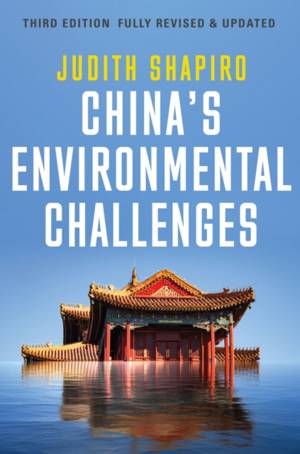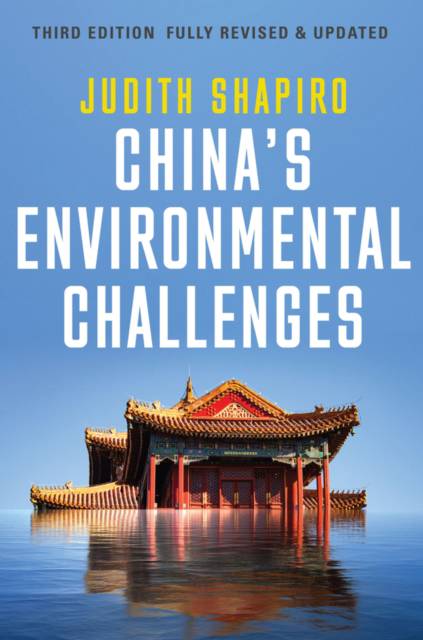
Je cadeautjes zeker op tijd in huis hebben voor de feestdagen? Kom langs in onze winkels en vind het perfecte geschenk!
- Afhalen na 1 uur in een winkel met voorraad
- Gratis thuislevering in België vanaf € 30
- Ruim aanbod met 7 miljoen producten
Je cadeautjes zeker op tijd in huis hebben voor de feestdagen? Kom langs in onze winkels en vind het perfecte geschenk!
- Afhalen na 1 uur in een winkel met voorraad
- Gratis thuislevering in België vanaf € 30
- Ruim aanbod met 7 miljoen producten
Zoeken
Omschrijving
China's huge environmental challenges affect not only the health and well-being of China but the very future of the planet. In this fully revised and updated third edition of her acclaimed book, noted scholar of Chinese environmentalism Judith Shapiro explores China's struggle to achieve the 'ecological civilization' championed by Xi Jinping since 2017.
Drawing on six core analytical concepts - globalization, governance, national identity, civil society, environmental justice, and extractivism - Shapiro ably demonstrates the multifaceted and complex nature of this struggle. China's precipitous economic growth has carried a heavy cost in air and water pollution, soil contamination, and loss of habitat for the biodiversity upon which human life depends. But its quest for sustainability has been further hampered by authoritarian governance patterns, soaring middle class consumption, the need to provide employment and safety nets for a population of more than one billion, and a manufacturing sector thirsty to secure global resources and sell to new markets.
Transformation to a more sustainable development model is still possible. But, as Shapiro persuasively argues, this will require humility, creativity, and a rejection of business as usual. China - and the planet - are at a pivotal moment.
Drawing on six core analytical concepts - globalization, governance, national identity, civil society, environmental justice, and extractivism - Shapiro ably demonstrates the multifaceted and complex nature of this struggle. China's precipitous economic growth has carried a heavy cost in air and water pollution, soil contamination, and loss of habitat for the biodiversity upon which human life depends. But its quest for sustainability has been further hampered by authoritarian governance patterns, soaring middle class consumption, the need to provide employment and safety nets for a population of more than one billion, and a manufacturing sector thirsty to secure global resources and sell to new markets.
Transformation to a more sustainable development model is still possible. But, as Shapiro persuasively argues, this will require humility, creativity, and a rejection of business as usual. China - and the planet - are at a pivotal moment.
Specificaties
Betrokkenen
- Auteur(s):
- Uitgeverij:
Inhoud
- Aantal bladzijden:
- 288
- Taal:
- Engels
Eigenschappen
- Productcode (EAN):
- 9781509559688
- Verschijningsdatum:
- 26/03/2024
- Uitvoering:
- Paperback
- Formaat:
- Trade paperback (VS)
- Afmetingen:
- 150 mm x 226 mm
- Gewicht:
- 612 g

Alleen bij Standaard Boekhandel
+ 61 punten op je klantenkaart van Standaard Boekhandel
Beoordelingen
We publiceren alleen reviews die voldoen aan de voorwaarden voor reviews. Bekijk onze voorwaarden voor reviews.









